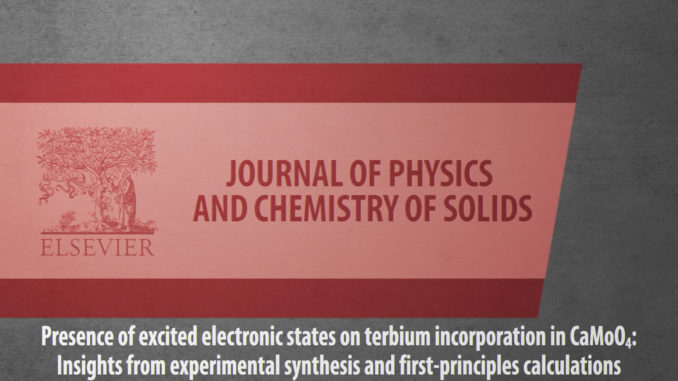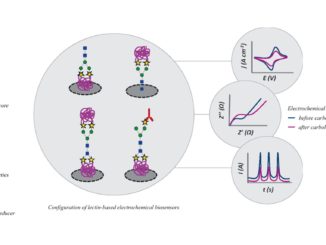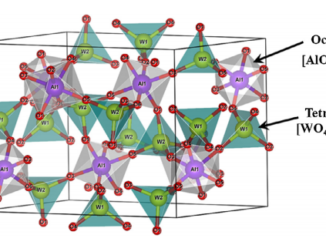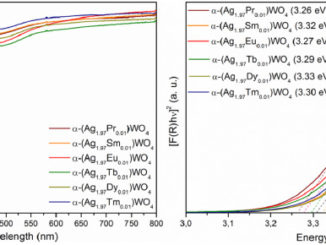
Presence of excited electronic states on terbium incorporation in CaMoO4: Insights from experimental synthesis and first-principles calculations
Abstract: We present a combined experimental and theoretical study to understand the structure and electronic and optical properties of CaMoO4:xTb3+ (x = 1 mol%, 2 mol%, and 4 mol%) microspheres. The microspheres were prepared by ultrasonic spray pyrolysis and characterized by X-ray diffraction (XRD), field-emission gun scanning electron microscopy (FEG-SEM), micro Raman spectroscopy, and photoluminescence (PL) spectroscopy. First-principles quantum mechanical calculations were performed at the density functional theory level to obtain the geometry and electronic properties of CaMoO4:xTb3+ microspheres in the ground electronic state and excited electronic states (singlet and triplet). These results, combined with XRD patterns, indicate that these crystals have a scheelite-type tetragonal structure. The morphology of the CaMoO4:xTb3+(x = 1 mol%, 2 mol%, and 4 mol%) samples was investigated by FEG-SEM, and a spherical shape was found. The optical properties were investigated by UV–vis spectroscopy and PL spectroscopy, and the chromaticity coordinates of these compounds were obtained. The relationships between the PL properties and the Raman spectra indicate that Tb3+-doped CaMoO4 microspheres constitute promising photoluminescent materials for use in new lighting devices. This also allowed us to understand the charge transfer process that happens in the singlet (s) ground state and the singlet (s*) and triplet (t*) excited states, which generates the photoluminescent emissions of the Tb3+-doped CaMoO4 microspheres.
Author(s): Tranquilin, R. L.; Oliveira, M. C.; Santiago, A. A. G.; Lovisa, L. X.; Ribeiro, R. A. P.; Longo, E.; de Lazaro, S. R.; Almeida, C. R. R.; Paskocimas, C. A.; Motta, F. V.; Bomio, M. R. D.
Journal of Physics and Chemistry of Solids
Published: February 2021, Volume 149, 109790
DOI: https://doi.org/10.1016/j.jpcs.2020.109790
CDMF
The CDMF, hosted at the Federal University of São Carlos (UFSCar), is one of the Research, Innovation and Dissemination Centers (RIDC) supported by the São Paulo State Research Support Foundation (Fapesp), and also receives investment from the National Council Scientific and Technological Development (CNPq), from the National Institute of Science and Technology of Materials in Nanotechnology (INCTMN).




